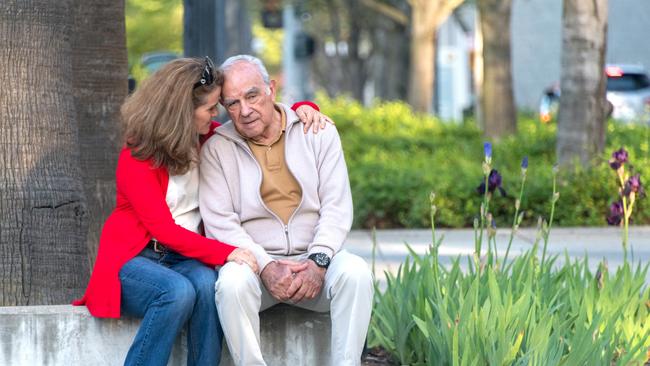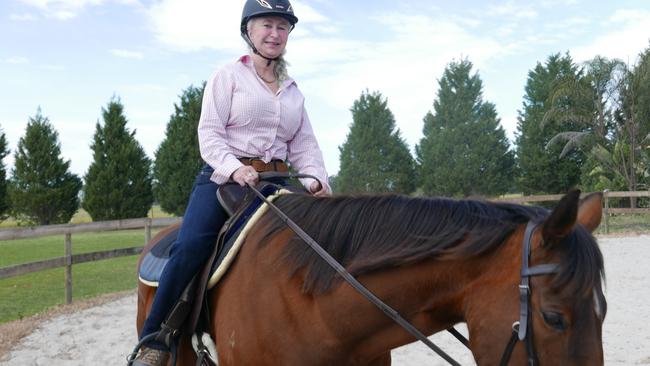Shunned, isolated and avoided on the street: How we discriminate against people with dementia and how you can help
“Fear” is driving Australians away from loved ones suffering from dementia. But there are simple ways to be there for them.
National
Don't miss out on the headlines from National. Followed categories will be added to My News.
Exclusive: People with dementia are being discriminated against and even their own friends and family won’t visit and exclude them from activities, startling new research shows.
The discrimination stems from lack of understanding that there are things people can do to support someone with dementia and that they still want to be involved in life, advocates say.
“Dementia has a stigma. Unless they are a very, very good friend you wouldn’t tell an acquaintance about your diagnosis,” said 54-year-old Sydney dementia sufferer Theresa Flavin.
“We always think of the end stage of nanna in a home off her trolley but there is an intermediate stage (where people are still involved in life) but people don’t want to invest the time because they don’t want to be responsible in the end,” she said.

Half a million Australians suffer from dementia and it’s predicted cases will double in the next 25 years.
A Dementia Australia survey of nearly 6000 people with dementia and their carers found
• 71 per cent haven’t been included in family activities.
• 80 per cent had people go out of their way to avoid a friend or relative with dementia in public.
• 81 per cent felt people in shops, cafes treat people with dementia differently.
• 90 per cent feel people with dementia are treated with less respect than other people.
Dementia Australia CEO Maree McCabe said the survey findings are distressing for people living with dementia, and the discrimination was driven by fear.
“What we fear we avoid,” she said.
However it would not take much to turn those findings around.
“It could be as simple as giving someone space to do things for themselves, listening to the person, not trying to solve all their problems, giving the person time to find the right words or using technology to support someone in their day-to-day activities,” Ms McCabe said.
Dementia is a disorder of the brain which can cause memory loss, confusion, personality change, apathy and withdrawal and the loss of ability to perform everyday tasks.

MORE NEWS:
How much private health price rise will cost you
$588m payday: Underpaid workers to receive massive windfall
Aussie dad’s bold mission to rescue child sex workers
Aussie teachers splash $150m on struggling kids
A high flyer in risk management in the finance world mother-of-five Theresa Flavin was diagnosed with dementia at age 45.
People can take away your responsibilities as a way of helping you when you have dementia, she said.
Her youngest daughter was aged seven when she was diagnosed and she set a goal to live well with the condition for as long as she could.
Ms Flavin took up horse riding with her daughter a way of learning a new skill to build new bridges in her brain.
“You can’t fix dementia but you can try to stop it getting worse and I will push for everything I’m worth into the time I’ve got left not to fade away,” she said.
Her next plan is to retrain her brain by learning to surf.
Originally published as Shunned, isolated and avoided on the street: How we discriminate against people with dementia and how you can help
